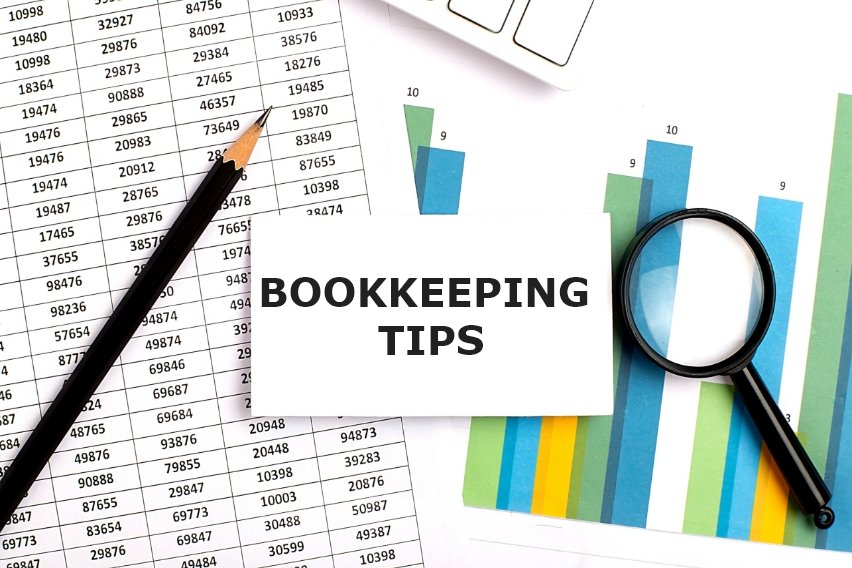Shopify Bookkeeping: The Complete Guide for 2025

Most people start a Shopify business because they have a great product to sell. But a single brilliant idea can’t keep the business running. Ecommerce businesses need a robust accounting system. A Shopify store owner must make informed decisions based on detailed financial reports.
Opening a Shopify account is quick and easy, but thorough record-keeping is different. However, Shopify accounting becomes much easier with cloud-based software. The popular ecommerce platform supports cloud accounting integrations.
Therefore, managing sales tax, business expenses, and other bookkeeping tasks become more manageable. Your online store can thrive with the help of third-party apps like FreshBooks.
Table of Contents
- Importance of Bookkeeping for Shopify Ecommerce Store
- How to Do Bookkeeping for Shopify Businesses
- Why Accounting Software Is Needed for Shopify Business?
- Automate Bookkeeping With FreshBooks
- Shopify Bookkeeping Best Practices
- Key Takeaways
- Frequently Asked Questions
Importance of Bookkeeping for Shopify Ecommerce Store
Business accounting is a challenge for all companies. Every small business owner must deal with tax planning, accrual accounting, and keeping track of cash flow. But ecommerce companies must also manage inventory, multiple sales channels, and sales taxes.
Furthermore, your Shopify store stays open at all hours of the day. This makes the potential for financial transactions almost limitless.
A very small ecommerce company could handle the manual data entry and a few spreadsheets. But ecommerce businesses with 6-figure revenue or more need a reliable accounting system.
Here’s why bookkeeping is so essential for Shopify stores.

Maintains a Stable Business Model
Understanding your company’s financial data is a path toward a stable business model. A reliable accounting process is one of the key metrics for a successful company.
An ecommerce business must keep track of every financial transaction and stay prepared for tax audits. Access to accurate financial data and financial reports like a cash flow statement or balance sheet is essential.
Helps With Financial Forecasting
Small businesses need to understand their numbers to make informed financial decisions. The only way to plan confidently is to rely on an effective bookkeeping process. Do you want to introduce more products or services down the line? It’s only possible with quality ecommerce bookkeeping.
Ensures Accurate Tax Compliance
A business’s finances take time and effort. If you don’t have bookkeeping experience, Shopify accounting will take a lot of your time. Online store owners worry about default reports, fraud prevention, financial reports, and more. But they also need to ensure tax compliance for their business. Having an excellent ecommerce bookkeeping strategy is essential.
Makes Ecommerce More Effective
From a financial perspective, every successful Shopify store is similar in a couple of ways. First, their Shopify bookkeeping system is well organized. The chart of accounts, cash flow forecast, and company bank accounts are all within reach and up to date. Second, it’s very clear who is keeping track of bank statements, financial transactions, and other financial data. Whether you choose to have an in-house bookkeeper or cloud accounting software is up to you.
How to Do Bookkeeping for Shopify Businesses
Many business owners struggle with keeping detailed records. With inventory management and frequency of financial transactions, Shopify sellers deal with even more challenges. If you don’t know anything about bookkeeping for an ecommerce business, here are a few basics you need to know:
Separate Finances
One of small business owners’ most significant mistakes is not separating their finances. You need separate bank statements for your business. The Shopify sales profits should not mix with your personal finances. It’s imperative to have a dedicated bank account for your Shopify store. Your business expenses should go through this account, including a Shopify subscription.
Learn About Financial Reports
Having a Shopify store means learning about how to create detailed financial reports and what they represent. You need to have a chart of accounts that shows all assets, revenue, and liabilities. It’s also important to review all financial data and reports and learn which metrics they represent. Here are the most important reports to keep in mind:
- Balance Sheet – It is a very detailed report on assets and liabilities for a specified period.
- Profit and Loss Statement – The profit and loss statement provides a comprehensive look at all income and expenses.
- Cash Position – This report refers to the amount of money coming into your Shopify store.
- Inventory Forecast – This report lets you track your best-selling products and know when to reorder.
Understand Shopify Sales Tax
When it comes to ecommerce and financial data, sales tax is a priority. All Shopify transactions calculate sales taxes, and getting a handle on them is essential. There’s plenty to consider, though. Online businesses sell everywhere, so the rules about tax collection differ depending on location.
Use Cloud Accounting Software
For Shopify stores, using cloud accounting software is a no-brainer. It takes over the burden of all repetitive tasks associated with Shopify bookkeeping. If you have other sales channels, sales accounting software makes managing them easier.
Why Accounting Software Is Needed for Shopify Business?
Maintaining control of your finances is vital if you own a Shopify store. The best way to do so is to integrate accounting software into the ecommerce platform.
But what are the real-life benefits of having accounting software in your Shopify store? Here are a few advantages to consider:
Simplicity
One of the most critical features of all bookkeeping software is its ease of use. You don’t need to be an accountant to record transactions and expenses. You may need time to learn about every functionality, but it’s still much simpler than tackling your business finances alone.
Cost Effectiveness
A dedicated bookkeeping app is more cost-effective than having 1 employee do all the bookkeeping. Some businesses may hire an accountant, but robust accounting software is a better financial decision for many.
Fraud Prevention
Reliable accounting software can provide fraud prevention measures. Fraud is a big problem for small businesses. That’s why bookkeeping software must offer features like multi-person sign-off and restricted access to inventory data.
Customer Support
No matter which software you use, problems can occur. The best accounting apps offer excellent customer support. You can troubleshoot the issue and ask for guidance.
Automate Bookkeeping With FreshBooks
If you’re running a Shopify store, FreshBooks can help. It is a comprehensive cloud-based accounting software, perfect for your ecommerce company. FreshBooks gives you access to expense management, reports, and insights.
It also secures data storage with SSL encryption and automates bank data importation. You can automate all your bookkeeping needs with FreshBooks. You can also receive invoice details, accounts aging, sales tax summaries, and more.
Shopify Bookkeeping Best Practices
If you’re new to the concept of Shopify accounting, it’s understandable to feel confused. But with a powerful cloud accounting system, you can manage it well. Still, it’s essential to keep in mind the most critical ecommerce bookkeeping practices.
Reconcile Your Account
Transaction errors are common in ecommerce. Perhaps the payment processor made a mistake, or your bank charged you twice. It’s essential to ensure your records match the bank’s. If you reconcile your account regularly, these mistakes stay minimal. You’ll also learn why they occur in the first place.
Manage Your Inventory
Perhaps one of the most challenging tasks of ecommerce companies is inventory management. That’s especially true if you’re selling from multiple channels. With proper bookkeeping you can ensure you have enough items in the inventory. Furthermore, Shopify store owners should know how much profit each product brings.
Track All Expenses
Every expense matters when you’re running a business. Sometimes business owners focus on materials, products, and shipping only. But it’s essential to keep track of expenses like rent, utilities, property tax, salaries, insurance, and loan payments.
Use a Bookkeeping App
Finally, consider integrating a bookkeeping app like FreshBooks into Shopify. Many try to do everything on their own, especially at the beginning. But outsourcing bookkeeping to reliable automated software can leave room for other important company-related activities.

Conclusion
Starting a Shopify online store doesn’t take too much effort. But turning it into a profitable business takes time, effort, and flawless bookkeeping. Shopify stores need to track inventory, collect taxes, and interpret financial reports.
All of this is so much simpler with Shopify accounting integrations. If you have a Shopify business, FreshBooks can create detailed financial reports and automate tasks.
FAQs on Shopify Bookkeeping
Does Shopify offer accounting?
They don’t have accounting built in as a feature. However, Shopify supports the integration of accounting software. You can also connect your bank account and credit cards to Shopify. It helps you better manage cash flow and finances.
What accounting software connects with Shopify?
Shopify allows integrations with cloud-based accounting software. Some of the most popular options are FreshBooks, QuickBooks, and Xero. The integration is pretty seamless. You can start using an accounting add-on in Shopify in no time.
Which bookkeeping software should I use with Shopify?
Shopify only integrates with top-quality bookkeeping apps. But if you want access to a full range of bookkeeping features, consider FreshBooks. It offers comprehensive record-keeping services and is easy to use. Naturally, you can try several options until you find one that works best for your business.
RELATED ARTICLES

 Bookkeeping for Property Management: 8 Best Practices
Bookkeeping for Property Management: 8 Best Practices 15 Bookkeeping Tips: Every Small Business Needs to Know
15 Bookkeeping Tips: Every Small Business Needs to Know Automated Bookkeeping: Benefits, Drawbacks and Prices
Automated Bookkeeping: Benefits, Drawbacks and Prices Outsource Bookkeeping: 6 Benefits, Types & Process
Outsource Bookkeeping: 6 Benefits, Types & Process Bookkeeping with Excel: 6 Steps, Pros, Cons & Example
Bookkeeping with Excel: 6 Steps, Pros, Cons & Example Bookkeeping for Nonprofits: A Basic Guide & Best Practices
Bookkeeping for Nonprofits: A Basic Guide & Best Practices